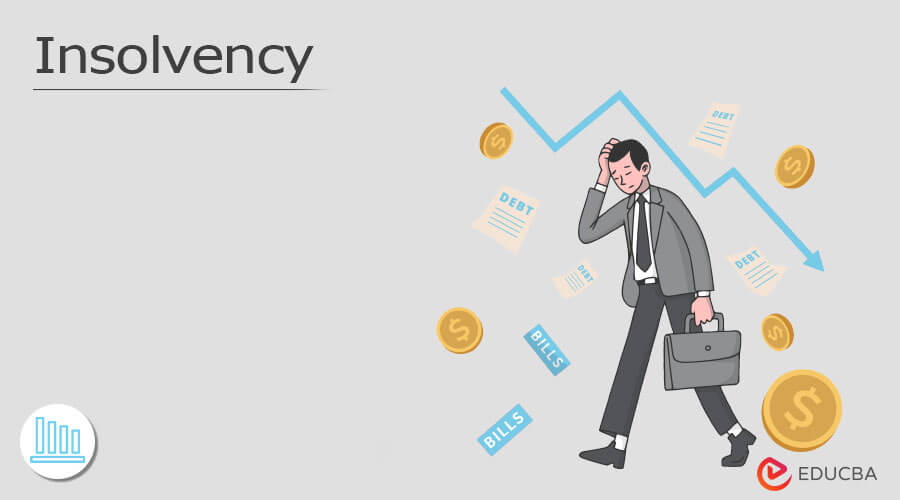The 5-Minute Rule for Insolvency Practitioner
The 5-Minute Rule for Insolvency Practitioner
Blog Article
An Unbiased View of Insolvency Practitioner
Table of ContentsExamine This Report on Insolvency PractitionerThe Definitive Guide for Insolvency PractitionerInsolvency Practitioner for BeginnersInsolvency Practitioner for BeginnersOur Insolvency Practitioner DiariesFascination About Insolvency PractitionerThe Best Strategy To Use For Insolvency Practitioner
Insolvency is when liabilities are above the value of the firm, or when a borrower can not pay the financial obligations they owe. A company can become financially troubled due to a number of circumstances that cause bad cash money circulation. When faced with insolvency, a business or person can get in touch with creditors directly and restructure financial obligations to pay them off.Insolvency can bring about bankruptcy procedures, in which lawsuit will certainly be taken versus the bankrupt person or entity, and possessions may be liquidated to repay impressive financial obligations. Entrepreneur may call financial institutions directly and restructure financial debts into more workable installations. Creditors are typically amenable to this strategy since they intend to be settled and avoid losses, also if the payment is on a delayed schedule.
Our Insolvency Practitioner Diaries
The owner creates a proposal outlining just how the financial obligation may be restructured making use of expense reductions or other prepare for assistance. The proposal reveals financial institutions just how business might produce enough cash money flow for successful operations while paying its financial debts. Normally, a forgiven financial debt may be considered revenue by the Irs (INTERNAL REVENUE SERVICE).

10 Simple Techniques For Insolvency Practitioner
The business might end up paying huge quantities of cash in damages and be not able to continue operations. When procedures stop, so does the company's revenue. Absence of earnings results in unsettled bills and financial institutions requesting money owed to them. Some business come to be financially troubled since their items or services don't evolve to fit consumers' altering demands.
Costs exceed revenues and bills stay unpaid. Kinds of bankruptcy include cash-flow bankruptcy and balance-sheet insolvency. Cash-flow insolvency takes place when a firm has the properties to cover their debts but they are in the wrong form, such as genuine estate rather than liquid funds. Balance-sheet bankruptcy, on the other hand, indicates a lack of assets in any type of type to cover financial debts.
The IRS states that an individual is bankrupt when the total liabilities exceed total assets. A bankruptcy, on the other hand, is an actual court order that illustrates how a financially troubled individual or organization will certainly settle their financial institutions, or how they will certainly offer their possessions in order to make the payments.
Insolvency Practitioner Things To Know Before You Get This

Debt combination is when you incorporate multiple loans right into one brand-new finance, usually to accomplish far better terms. Insolvency is not the very same as insolvency, although a company that has actually ended up being insolvent might apply for personal bankruptcy. Insolvency is the state of not being able to pay your obligations while insolvency is a legal process to release your financial obligations.
Understanding the factors that can bring about bankruptcy, such as overspending, can assist you stop insolvency and its consequences.
The Definitive Guide to Insolvency Practitioner
It is well known that directors and officers of companies (and supervisors of restricted obligation firms) owe fiduciary obligations to their companies and their shareholders (or participants). These fiduciary commitments are specified by state laws and, though there are variants from one state to another, they commonly consist of an obligation of commitment and an obligation of treatment.
The task of treatment requires directors and police officers these details to work out diligence, to make enlightened decisions, and to act in good confidence so that their activities remain in the very best interest of the firm. Past the scope of this conversation, some states allow these duties to be limited either by so keeping in mind in the business papers or complying with other requirements.
Unknown Facts About Insolvency Practitioner
The majority of states specify bankruptcy in two means( 1) when a firm's responsibilities come to be higher than the sum of its possessions or (2) when the business becomes not able to pay its financial obligations as they come to be dueand embrace both meanings (Insolvency Practitioner). The change in duties occurs due to the fact that when a company is financially troubled, there is no value in the company beyond that owed to the company's lenders to ensure that the equity owners no more have an economic risk in the site business
Be mindful concerning giving shareholders favoritism at the expenditure of financial institutions (e.g., accrediting and moneying a returns or a stock redemption). Be careful concerning preferential treatment between classes of shareholders. Clear up initiatives to learn all the facts prior to taking a certain strategy; supervisors ought to truly think that any kind of decisions made remain in the ideal passions of the firm in its entirety (i.e., choices will be evaluated in knowledge in light of the effect of such activities on the corporation).
In any type of bankruptcy or bankruptcy case, repayments made to particular financial institutions at the expense of various other financial institutions can be clawed back, specifically if there is some link between the firm and the creditor. Consider recommending at an annual investor conference (or any various other conference of shareholders) a resolution affirming that all previous service choices and activities taken by the supervisors and policemans of the corporation were absorbed good belief after a workout of reasonable care.
The 7-Second Trick For Insolvency Practitioner
Completely divulge any individual or business partnerships with parties on the other side of transactions involving the firm to avoid the look of a problem of interest. In evaluating possible hop over to here fund elevating transactions or a sale of assets of the distressed firm, be mindful that these deals may be scrutinized later because of any type of succeeding development of supervisors' fiduciary duties to consist of financial institutions.
Report this page